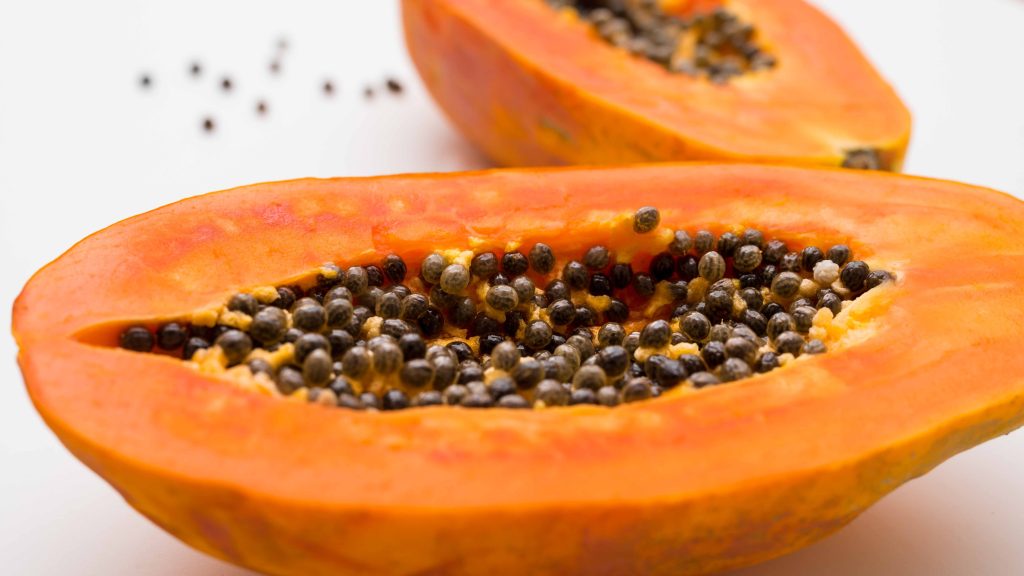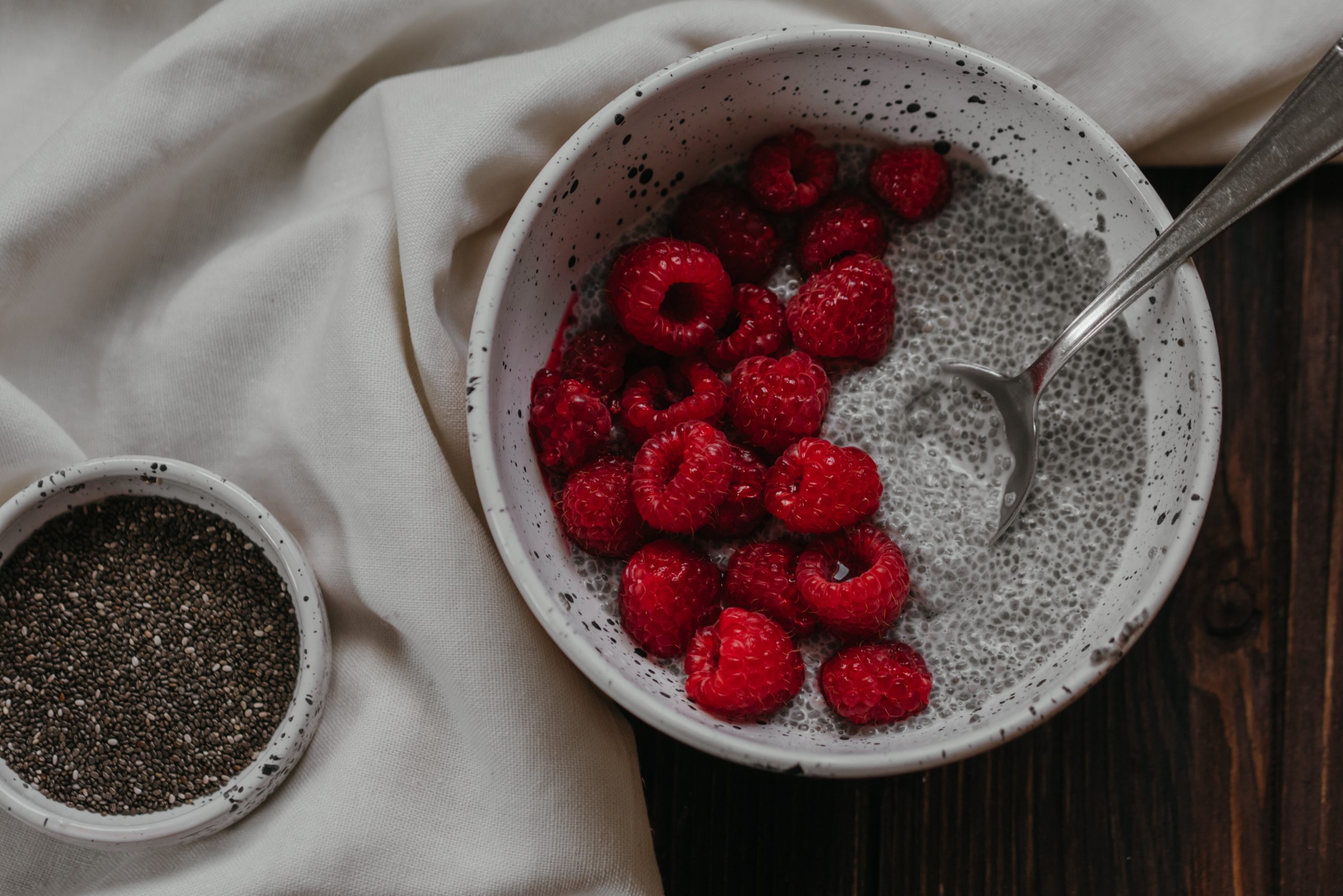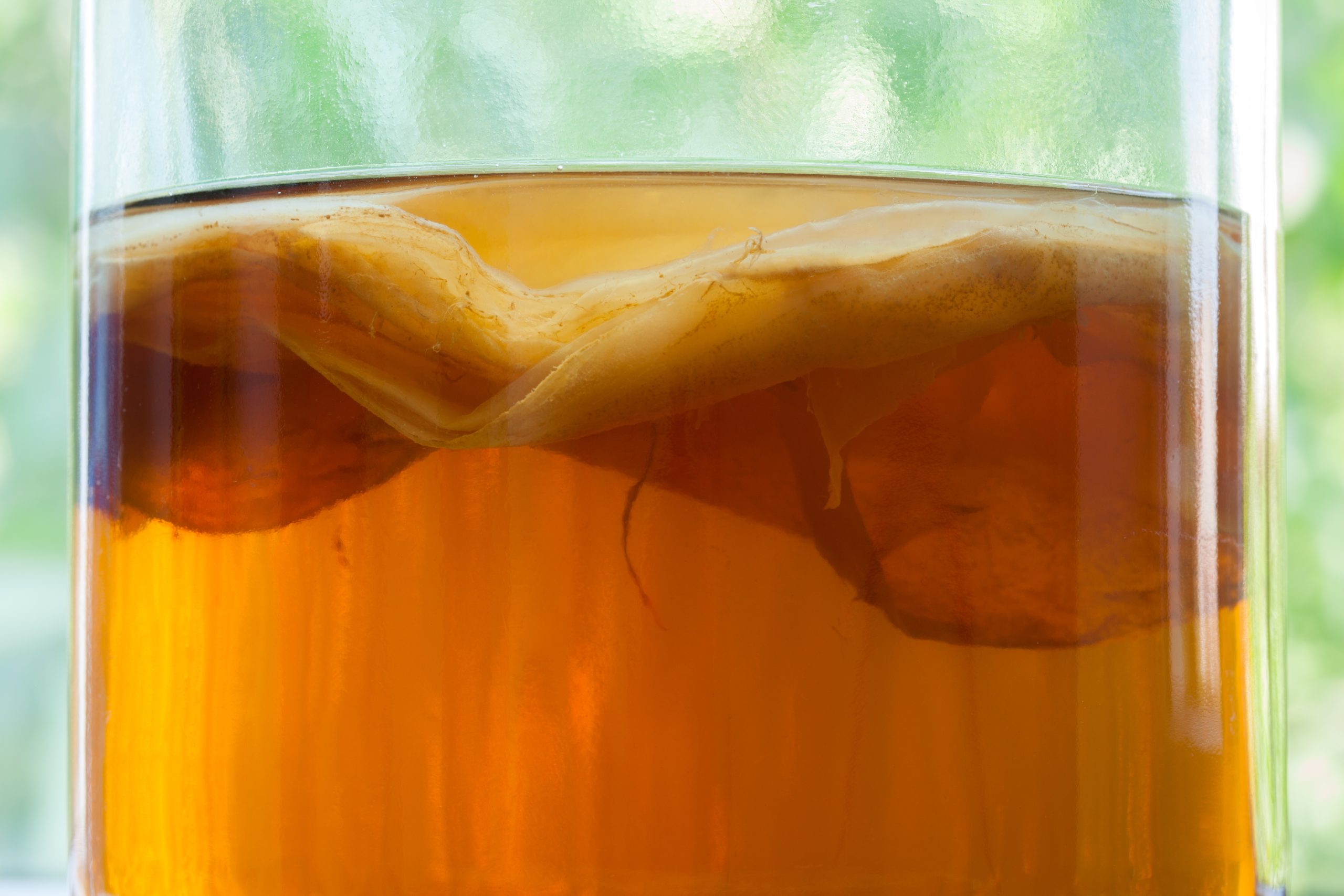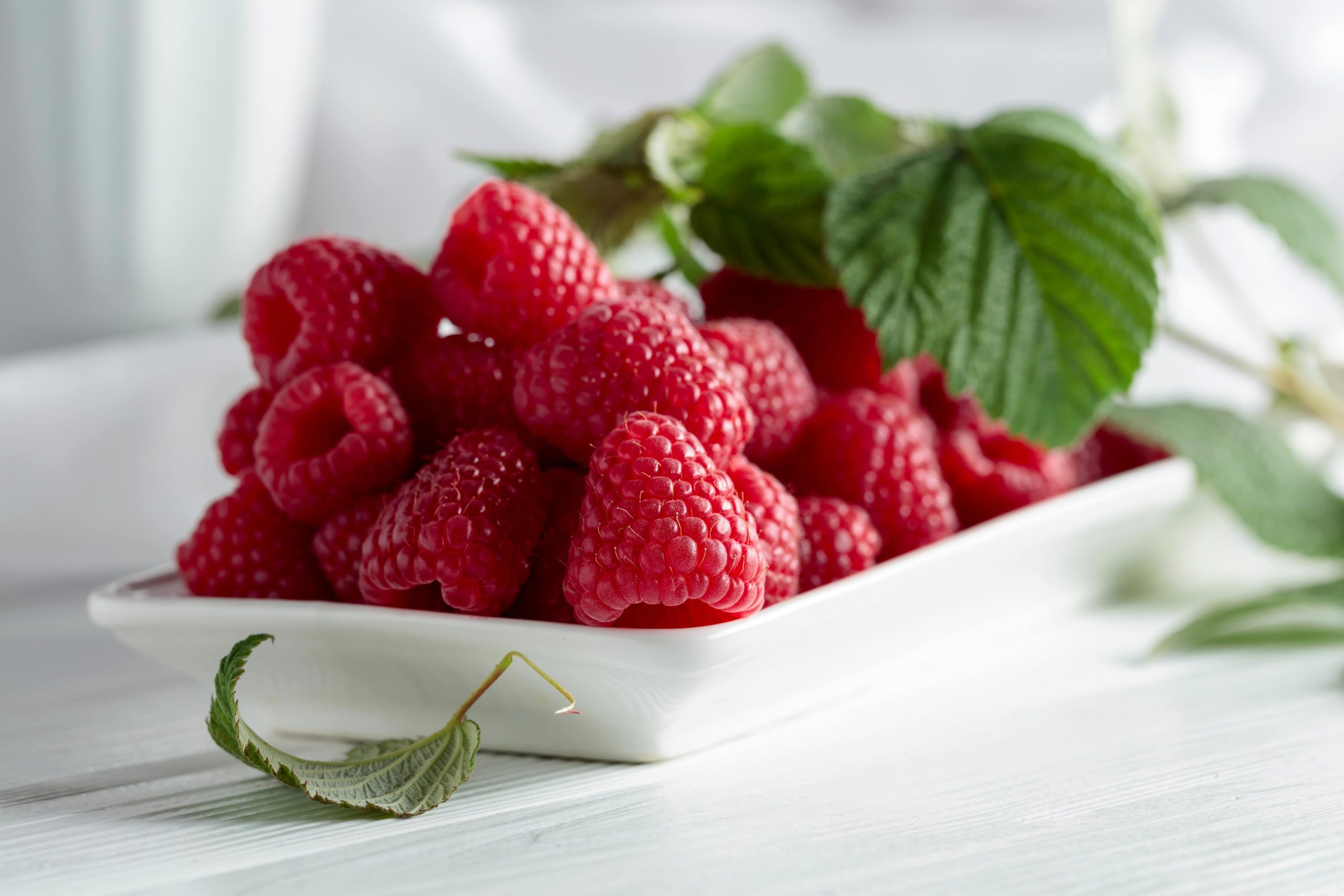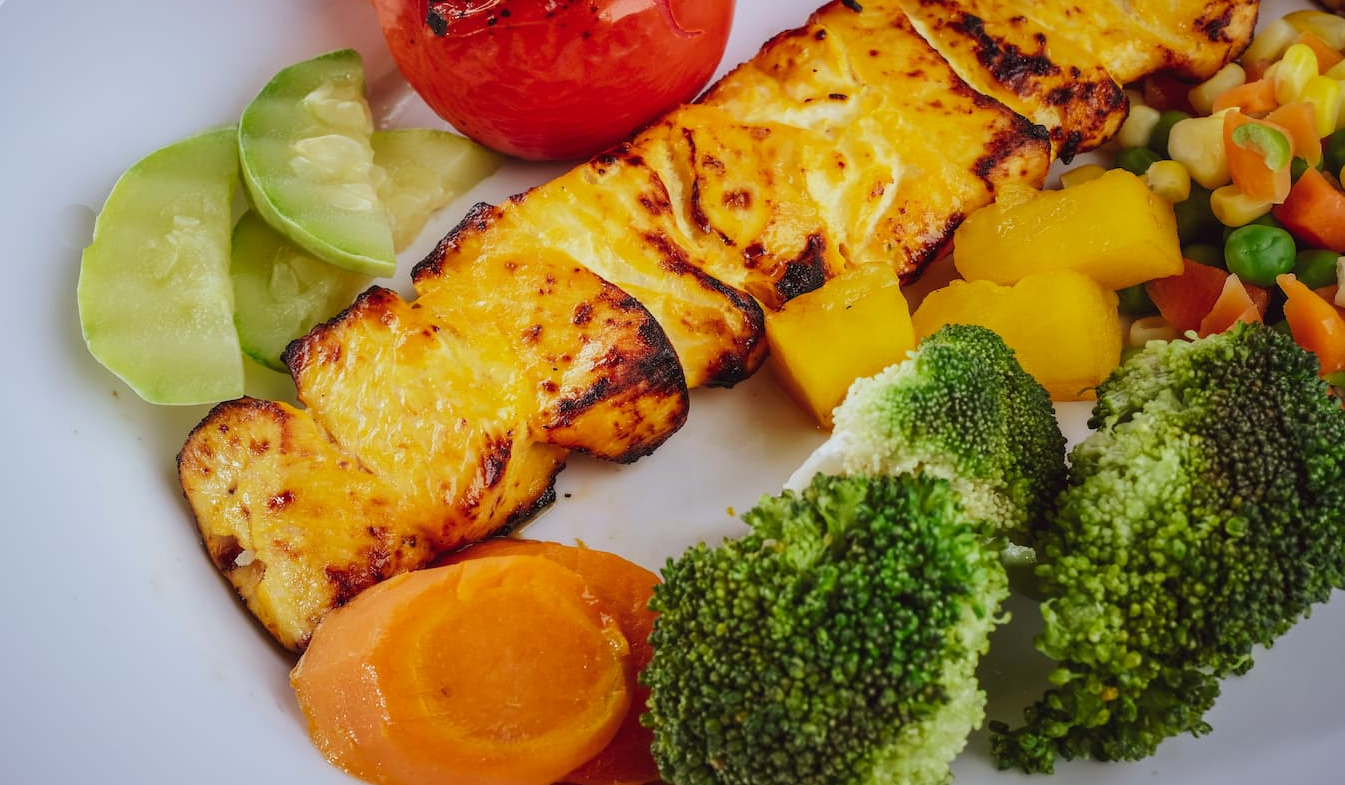Papaya is a juicy subtropical fruit native to Mexico and South America. Thanks to its unusual appearance and excellent taste, it has won the hearts of many people.
Christopher Columbus once called papaya ‘the fruit of the angels’ and how wonderful that today it is available not only to people living on exotic islands but also in ordinary supermarkets. It makes a great addition to your breakfast, dinner, and drink, and can be a delicious dessert and even medicine.
Papaya – Nutrition facts

Papaya has low energy value, a small number of proteins and almost no fat. Relatively high carbs, medium sugar content. Also, low-fibre and low glycemic index which is good for a blood glucose levels.
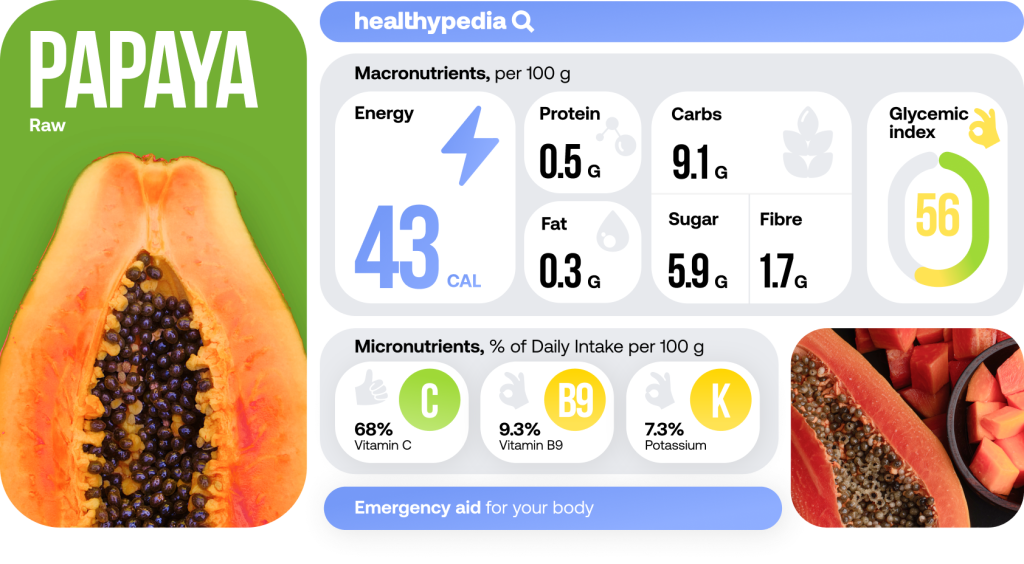
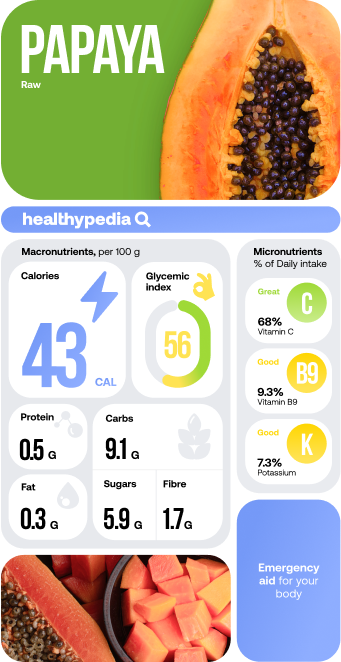
Papaya – Good news

Papaya is beneficial for the human body and has many special properties.
1Has anti-cancer properties
Papaya contains lycopene, one of the most powerful antioxidants in the world. Lycopene is an anti-cancer phytonutrient. The lycopene content of papaya is 1800 mcg (3.96 lb) per kilogram (2.204 lb) fresh weight.
Lycopene suppresses the growth of breast and prostate cancer by blocking the signalling pathways that normally cause tumours to grow. Similar to its effect on breast and prostate cancer, lycopene also stops the spread of renal cell cancer, the most common type of malignant kidney tumour.
Papaya can also promote cancer-preventive processes by reducing free radicals that contribute to cancer.
2Improves heart health
Adding more papaya to your diet can improve heart health. The antioxidants in papaya can protect your heart and boost the protective effect of good HDL cholesterol. Papaya also contains potassium, magnesium and pantothenic acid, which contribute to cardiovascular health.
3Packed with nutrients
Papaya contains the enzyme papain, which can break down the tough protein chains found in meat. It contains essential vitamins such as vitamin C, potassium, and folate (vitamin B9). As well as trace amounts of calcium, magnesium and the vitamins B1, B3, B5, E and K. All these nutrients play an important role in building a strong, healthy body.
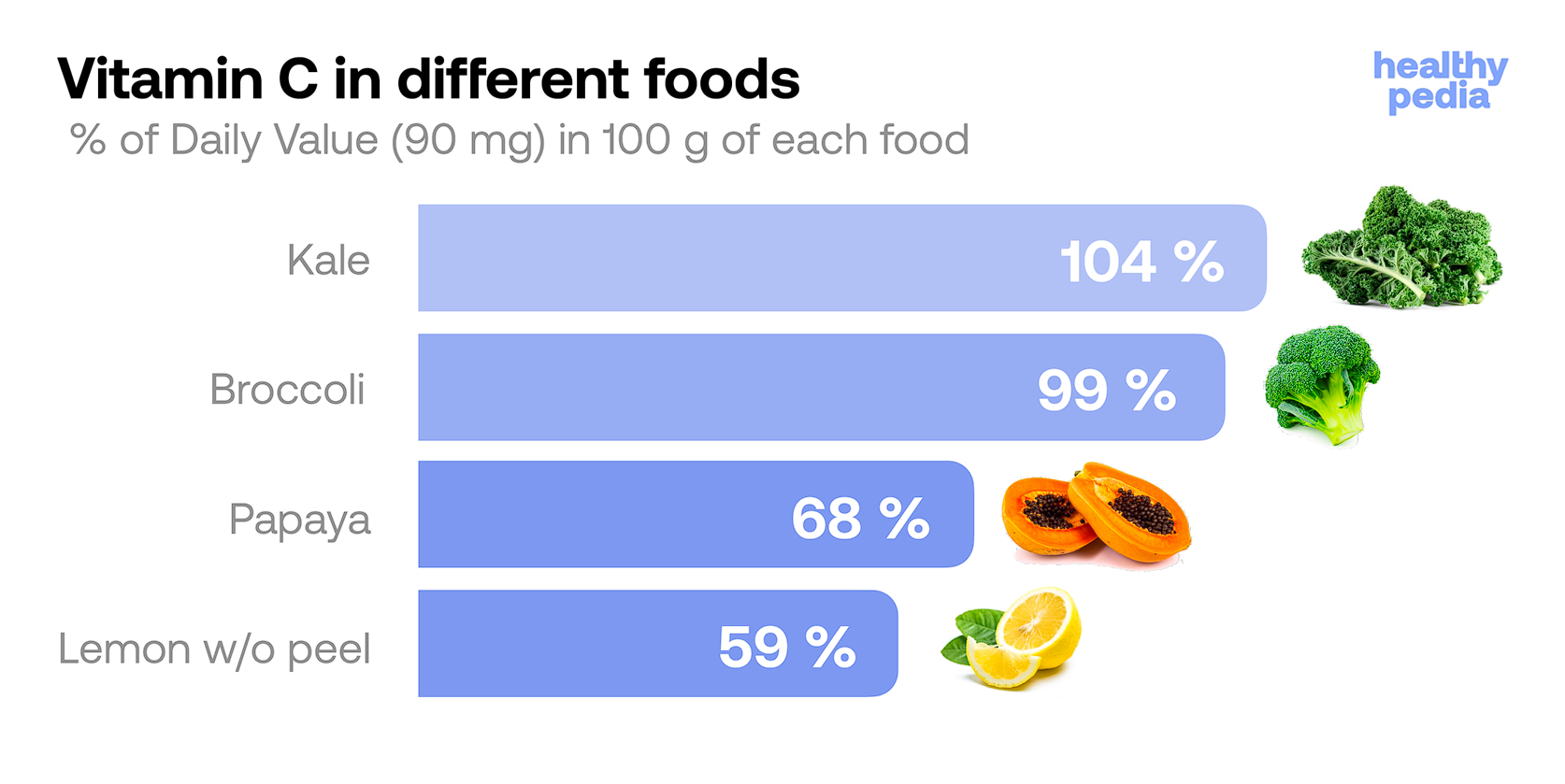 Source: usda.gov
Source: usda.gov As you can see, the top spot for vitamin C content on this list goes to kale. But papaya can also boast 68% of vitamin C.
Papaya also contains beneficial antioxidants known as carotenoids. It reduces oxidative stress, slows the development of atherosclerosis, and ensures your DNA is protected from damage.
4Contains a range of enzymes important for health
Fruit, leaves and seeds of the papaya tree contain important substances for health, such as:
-
papain – an enzyme responsible for the fast and good digestion of foods high in protein;
-
arginine – a substance particularly important for men because it increases the potency and improves the quality of genetic material;
-
carpain – an enzyme which has a beneficial effect on blood vessels and the heart, protects the body from the development of cardiac diseases;
-
fibrin – an enzyme that prevents blood from clotting or excessive liquefaction.
The benefits of papaya enzymes are even used in official medicine, and supplements containing these enzymes can be found in pharmacies.
5Aids digestion
In the tropics, papaya is considered a cure for constipation and other symptoms of irritable bowel syndrome. Papaya has a high content of papain which allows you to get rid of any digestive disorders. Papain helps to break down proteins into amino acids, thus facilitating their rapid absorption by the body. In addition, papain has anti-inflammatory and anti-thrombotic properties.
6Makes your skin look more beautiful
As well as keeping your body healthy, papaya can make your skin dewy and plump. The vitamin C and lycopene in papaya protect your skin and can help reduce those signs of ageing.
Papaya – Bad news

Papaya is great, but sometimes it may not work for everyone.
The American Academy of Allergy, Asthma and Immunology reports that if you are allergic to mangoes, pistachios or cashews, papaya may also trigger an allergic reaction. Latex allergies are also associated with papaya allergies.
Only ripe fruit is allowed for pregnant women. Green papaya contains a substance called peptine, which causes additional uterine contractions and can lead to miscarriage.
Fun & curious facts about papaya
-
The black seeds hidden inside the ripe papaya taste like black pepper and in some countries are used as a substitute for black pepper.
-
The enzyme papain is used in the production of chewing gum.
-
Christopher Columbus nicknamed the papaya ‘the fruit of the angels’.
Papaya in the Blue Zones
Long-livers in Nicoya, Costa Rica regularly feast on papaya. Papaya trees grow almost everywhere in Nicoya, so all centenarians certainly have enough of this lovely fruit. Most of the time they just eat it raw, chopped or cook delicious meals with it.
Papaya. Experiment by our expert
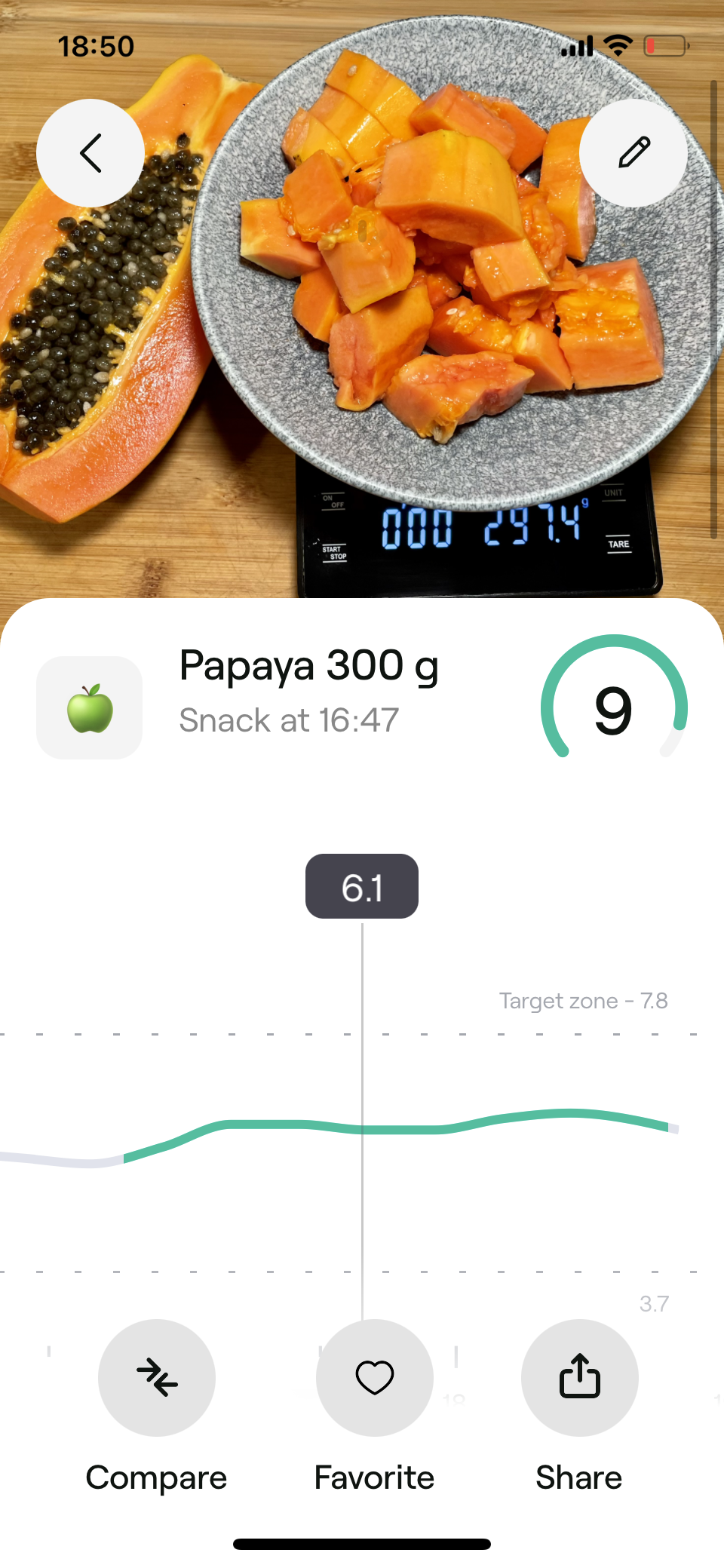 Nutrition
Nutritionscore Blood glucose
trend
Testing papaya was one of the most pleasant and delicious tasks. Sweet, juicy and very healthy as I recognised after the test. 9 out of 10. Some natural sugars were absorbed slowly without any significant blood glucose impact. Maybe this healthy response was because of papaya’s source of flavonoids, or maybe this is because of a moderate amount of papaya itself for the test – just 300 grams. My conclusion – I can recommend it in moderate amounts!
Let’s sum papaya up

Not only has papaya a pleasant taste but is also rich in nutrients. Its powerful antioxidants, such as lycopene, can reduce the risk of many diseases – especially those that usually come with age, such as heart disease and cancer. It can also prevent the visible signs of ageing by making your skin smooth and plump.
Not enough? Here is more from our colleagues
In this video, Dani from her Clean&Delicious YouTube channel will tell you some interesting information about papaya and show you how to buy, store, prepare a juicy and delicious red papaya.

